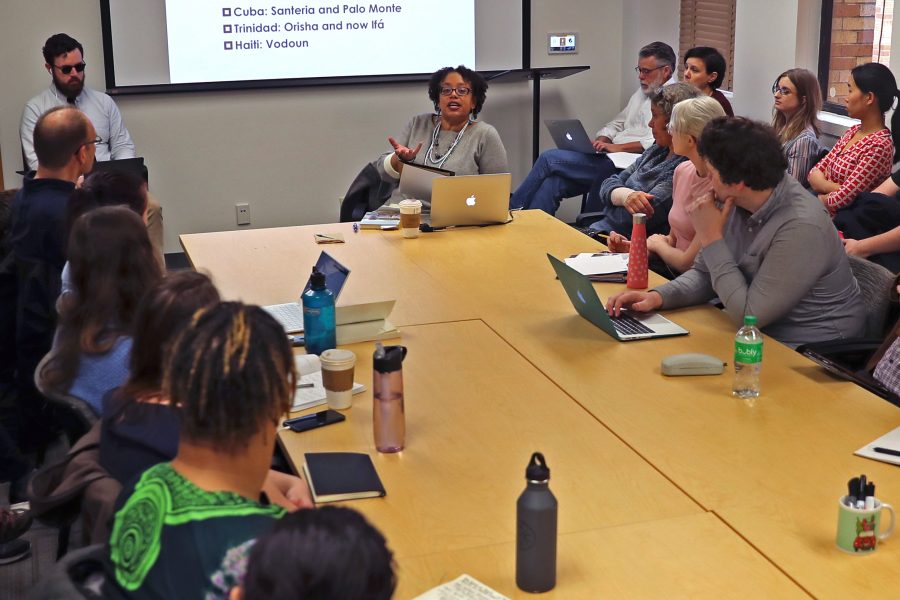Ifá, an African religion, is the 10th-largest religion in the world, said N. Fadeke Castor, who studies African diasporic religions.
Castor, an author, scholar and educator, shared her experiences studying religions such as Ifá in a room filled with students, professors and other religious experts Monday afternoon.
Castor has immersed herself in Trinidadian culture for over 20 years and has conducted field-based research on Afro-Trinidadian rituals and traditions for three years. Castor’s work has focused on African religions, specifically Ifá, which spread to America in the Atlantic Slave Trade and then to Trinidad and Tobago in the 1970s. This religious diffusion is often referred to as diaspora.
Castor said there are many names for Ifá, widely known as Orisha, depending on where you are in the world, but they are all the same religion.
“Somebody from Cuba can show up to Trinidad and go to Orisha and understand what is going on.” Castor said.
Although a person who practices Orisha could travel anywhere in the U.S. to go to an Orisha ritual, Castor told the audience that people would rather go to somewhere such as Nigeria because America is not often preferred by the Orisha circuit due to factors such as recent American elections and certain comments from American political leaders.
Linnea Andersson, a physics and international studies junior on exchange, said she was intrigued by the information Castor presented.
“I attended this seminar in hopes of learning about the views of the rest of the world,” Andersson said.
In Castor’s book, “Spiritual Citizenship,” she talks about the Black Power Movement in Trinidad and Tobago in the 1970s. This movement was largely influenced by the Civil Rights Movement in America. While researching how Ifá came to Trinidad, Castor was led to the historical Black Power Movement. This movement was important to the diffusion of Ifá because it empowered black people and gave them the opportunity to normalize Ifá practices in Trinidad, Castor said.
English senior Shelby Ghiselin heard about this event from her Science, Magic, and Religion professor and attended in hopes of learning more about other practices across the world.
“I think it’s always good to expand your perspective,” Ghiselin said. “I have a bubble of experience I live in, and I want to change that.”



